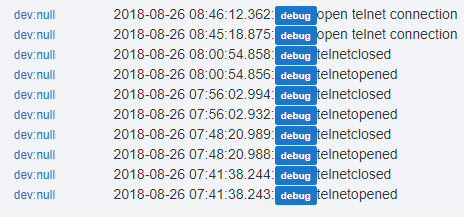So a little googling brought me across this github repository.
After a small amount of fuss I can confirm that I can trigger TTS directly on my alexa device with my pi.
Seems this is what everyone is looking for.
Device driver for Alexa TTS via Telnet
Device driver for sending tts text via http to the tts script.
/**
* Alexa HTTP speach device
*
*
*
* Licensed under the Apache License, Version 2.0 (the "License"); you may not use this file except
* in compliance with the License. You may obtain a copy of the License at:
*
* http://www.apache.org/licenses/LICENSE-2.0
*
* Unless required by applicable law or agreed to in writing, software distributed under the License is distributed
* on an "AS IS" BASIS, WITHOUT WARRANTIES OR CONDITIONS OF ANY KIND, either express or implied. See the License
* for the specific language governing permissions and limitations under the License.
*
* Change History:
*
* Date Who What
* ---- --- ----
* 2018-09-01 Chris Wilson Modified to speach device for alexa tts
* 2018-02-18 Dan Ogorchock Original Creation
*
*
*/
metadata {
definition (name: "HTTP Momentary ALEXA TTS Switch", namespace: "cw", author: "cwwilson08") {
capability "Notification"
capability "Speech Synthesis"
}
preferences {
input(name: "deviceIP", type: "string", title:"Device IP Address", description: "Enter IP Address of your HTTP server", required: true, displayDuringSetup: true)
input(name: "devicePort", type: "string", title:"Device Port", description: "Enter Port of your HTTP server (defaults to 80)", defaultValue: "80", required: false, displayDuringSetup: true)
input(name: "deviceMethod", type: "enum", title: "POST, GET, or PUT", options: ["POST","GET","PUT"], defaultValue: "POST", required: true, displayDuringSetup: true)
}
}
def parse(String description) {
log.debug(description)
}
def push(message) {
//toggle the switch to generate events for anything that is subscribed
sendEvent(name: "switch", value: "on", isStateChange: true)
runIn(1, toggleOff)
//sendEvent(name: "switch", value: "off", isStateChange: true)
runCmd(message, deviceMethod)
}
def speak(message) {
runCmd(message, deviceMethod)
}
def runCmd(String message, String method) {
def localDevicePort = (devicePort==null) ? "80" : devicePort
def path = "/alexaspeak/" + message
def body = ""
def headers = [:]
headers.put("HOST", "${deviceIP}:${localDevicePort}")
headers.put("Content-Type", "application/x-www-form-urlencoded")
try {
def hubAction = new hubitat.device.HubAction(
method: method,
path: path,
body: body,
headers: headers
)
log.debug hubAction
return hubAction
}
catch (Exception e) {
log.debug "runCmd hit exception ${e} on ${hubAction}"
}
}
here is the flow I use for the alexa tts script
The node that passes the tts text to the alexa script
[
image.png535x640 19.9 KB







